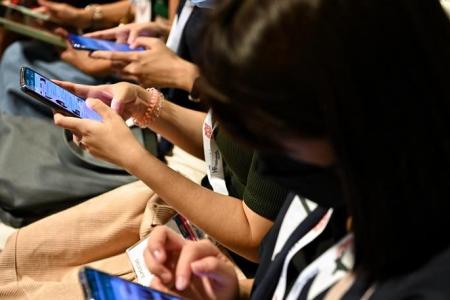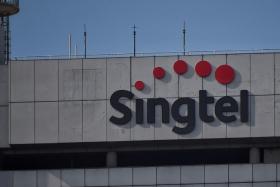Goodbye, 3G: Telcos to retire 3G network
From Aug 1, local mobile network operators will begin to bid farewell to 3G, the third-generation wireless technology that helped to usher in modern smartphones.
M1 will be the first to retire its 3G network, as all its 3G customers have subscribed to 4G or 5G services. A small percentage still use 3G handsets but have been urged to move to the latest networks, it said on July 24.
Singtel and StarHub will give their remaining 3G subscribers more time to migrate networks, with plans to discontinue the 3G network from November, the Infocomm Media Development Authority (IMDA) said on July 24.
Introduced more than two decades ago, 3G networks ushered in the smartphone era by enabling widespread mobile internet browsing, the sharing of photos, and transforming smartphones like the iPhone 3G and early Samsung Galaxy S devices into mini-computers.
In July 2023, the network operators announced plans to retire 3G networks. IMDA required operators to ensure that those who used 3G were migrated smoothly to 4G or 5G networks, and said the companies could shut down the service after July 31, 2024.
Once that happens, customers still on 3G devices will no longer receive voice, messaging and data services.
Fewer than 0.1 per cent of mobile subscribers here, or less than 9,000 lines, were still on 3G, as at July, IMDA said, adding that the network’s discontinuation will help telcos prioritise investments in 5G networks to support digital transformation plans for enterprises.
The latest standard in cellular networks is 5G, offering high-quality streaming and support for data-intensive apps.
IMDA said subscriptions for 5G have picked up since it was introduced in 2022, accounting for 20 per cent of subscribers, which are expected to grow in numbers.
Network operators are required to provide a range of 4G and 5G service plans at different price points and mobile phone options to help 3G users make the switch, said IMDA, noting that the firms have provided dedicated assistance to vulnerable groups, such as senior subscribers, and the delivery of SIM cards to those with mobility issues.
Since February, IMDA has also stopped the import and sale of 3G mobile devices in Singapore to prevent further proliferation in the market.
Retailers and service providers that use 3G connectivity, such as car manufacturers and fleet management service providers, were also told of the network’s planned retirement.
M1, Singtel and StarHub said in separate statements that they are assisting those still reliant on 3G services to fully move to next-generation networks through calls, messages and in-person outreach, adding that the move will help them to enhance 5G services, which support better speeds, security and applications.
Singtel deputy chief executive Anna Yip said on July 24 that it will retire its 3G network progressively from November, to give a small number of customers more time to switch over.
She said post-paid customers concerned about costs will get to stay on their existing price plans and even receive a free 5G SIM card.
Customers who have received notifications about the 3G closure are advised to call 1688 to discuss their device options, said Ms Yip. She said Singtel has reached out to customers, especially seniors and vulnerable groups, to help them navigate their new device and ensure they can continue to use essential apps for their daily activities.
StarHub encouraged its users to upgrade to a 4G-compatible device promptly to avoid any service disruption once it retires the network from November.
To determine if a device is still using 3G, users can check the network status icon, typically located in the top right corner of the smartphone screen. Those with phones that display a constant 3G or H+ symbol will likely need to upgrade their device.
Major carriers overseas, like in Australia and Europe, have also moved to phase out 3G, with most of these networks scheduled to shut down before the end of 2024. The US and Malaysia have already completed the transition.
Mr Simon Trend, group managing director for global connectivity solutions provider Wireless Logic, said he expects businesses to be minimally impacted by the cessation of 3G given the long runway to move to the latest networks and Singapore’s experience in transitioning the industry from the 2G networks in 2017.
He said smartphone users are unlikely to be impacted because most would have moved on to newer devices, but enterprises or consumers using legacy systems in fixed devices such as consoles in older cars could lose functionalities dependent on connectivity.
Get The New Paper on your phone with the free TNP app. Download from the Apple App Store or Google Play Store now


